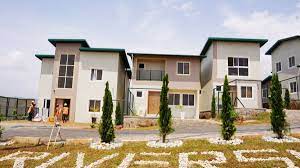The government is considering the prospect of directly investing in a social rental housing programme to deliver low-cost housing in Rwanda. The project is targeting individuals earning below Rwf200,000 per month, according to Infrastructure Minister Ernest Nsabimana.
Minister Nsabimana revealed a feasibility study on the implementation of the programme and the government’s involvement in it. Additionally, the programme will be completed by August this year.
Notably, low-cost housing refers to the provision of affordable or subsidized rental housing, offered below market rents. Additionally, affordable housing should not exceed 30% of a tenant’s gross income by entities such as the government. This initiative objects to assist individuals who are incapable to find suitable accommodation in the private rental market.
Minister Nsabimana stressed that Rwanda is drawing inspiration from countries like South Korea and Singapore. Additionally, both countries have successfully implemented low-cost housing schemes which provide housing to a significant number of people with government support.
Also Read: Rwanda Housing Authority moves to attract investors in housing sector
Significance of affordable housing to the Future of Rwanda
According to Minister Nsabimana, Rwanda’s urbanization plans estimate that by 2050, 70% of Rwandans will be living in urban areas. Therefore, it necessitates over 2.1 million houses. The majority of these houses will be required by small and middle-income earners. Noteworthy, it will require special measures to provide suitable accommodation and prevent the proliferation of slums.
This decision comes in as a rejoinder to the inadequate accessibility of affordable housing opportunities that low-income earners can afford. Additionally, the original target of constructing 15,000 affordable housing units between 2017 and 2024 may not be achieved. Instead, it is projected that only 5,700 units, or 38%, will be realized due to ongoing projects.
The government is exploring options like constructing low-cost houses near a high concentration of job opportunities areas to reduce transportation costs. An example cited was the Kigali Special Economic Zone in Masoro, which employs many individuals.
